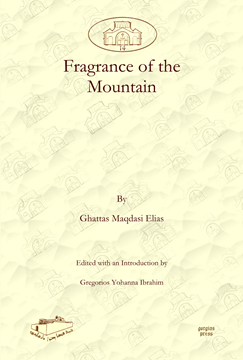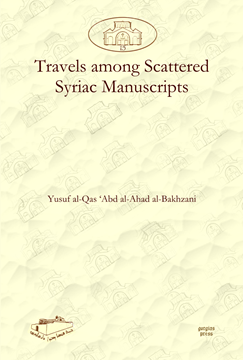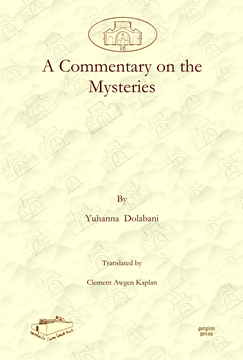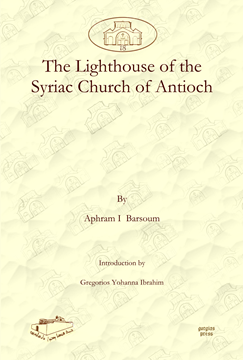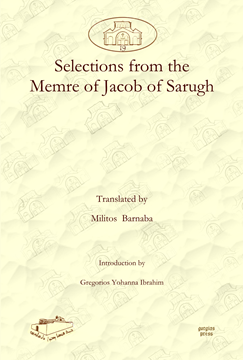Fragrance of the Mountain
By Ghattas Maqdasi Elias; Edited with an Introduction by Gregorios Yohanna Ibrahim
ISBN: 978-1-60724-165-2
Ghattas Maqdasi Elias, the ‘Malphono,’ was one of the most important Syriac writers of the twentieth century and devoted much of his life to ensuring that classical Syriac remained a vibrant and living language. For the lover of Syriac and Syriac poetry, therefore, this small book represents a special treat: a collection of twenty five of Elias’ poems are assembled and printed here.
$103.00 (USD) $61.80 (USD)
Travels among Scattered Syriac Manuscripts
ISBN: 978-1-60724-166-9
In this book Yusuf al-Bakhzani has performed the marvelous task of combing through dozens of different historical sources and studies, many of them published in Arabic in the Middle East and little-known, if at all, to Western scholars, and culled references to Syriac books, manuscripts, and libraries—both East Syrian and West—throughout the Middle East, from the Middle Ages to the present; Syriac manuscripts in India also receive attention.
$124.00 (USD) $74.40 (USD)
A Commentary on the Mysteries
By Yuhanna Dolabani; Translated by Clement Awgen Kaplan
ISBN: 978-1-60724-167-6
This small book is an exposition of the mysteries (or sacraments) of the Syrian Orthodox Church by the eminent Philoxenos Dolabani. The mysteries discussed are: Baptism, the Myron, the Eucharist, penance, the priesthood, anointing the sick, and marriage.
$108.00 (USD) $64.80 (USD)
The Book of Treasures
By Job of Edessa; Translated by Yusuf Habbi & Behnam Daniel ; Introduction by Gregorios Yohanna Ibrahim
ISBN: 978-1-60724-168-3
Written around 817 AD, Job of Edessa's Book of Treasures is an encyclopedia of philosophy and natural philosophy. Habbi and Daniel’s introduction to The Book of Treasures provides a thorough overview of what we know about the life and writings of Job of Edessa and also discusses the sources of The Book of Treasures. This new translation of The Book of Treasures will be an important resource for all interested in the intellectual world of the Greco-Syriac-Arabic translation movement of the Abbasid period and the history of scientific study and research in Syriac.
$197.00 (USD) $118.20 (USD)
The Lighthouse of the Syriac Church of Antioch
By Aphram I Barsoum; Introduction by Gregorios Yohanna Ibrahim
ISBN: 978-1-60724-169-0
This book is a collection of articles written by the eminent scholar and Syrian Orthodox Patriarch Ephrem Barsaum. The “Lighthouse” in the book is meant to refer to the thought of Patriarch Barsaum: like a lighthouse, every researcher, scholar, or reader of Syriac must turn towards it for guidance. The articles in this volume display Barsoum’s characteristic erudition and scholarly thoroughness and cover a wide variety of topics, all related to the history of the various Syriac-speaking churches and the churches of Antioch, in addition to other Middle Eastern Churches.
$142.00 (USD) $85.20 (USD)
Selections from the Memre of Jacob of Sarugh
Translated by Militos Barnaba; Introduction by Gregorios Yohanna Ibrahim
ISBN: 978-1-60724-170-6
Militos Barnaba has chosen 20 of the most beautiful memre of Jacob of Sarugh and here provided a sense-for-sense translation of them into Arabic. For each memra a short excerpt of the Syriac original is given, followed by an Arabic translation of the entire piece. An introduction by Bishop Gregorios Yohanna Ibrahim provides background on the life and writings of Jacob of Sarugh.
$169.00 (USD) $101.40 (USD)
